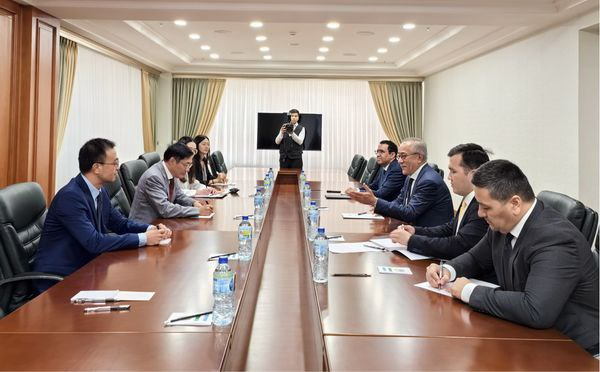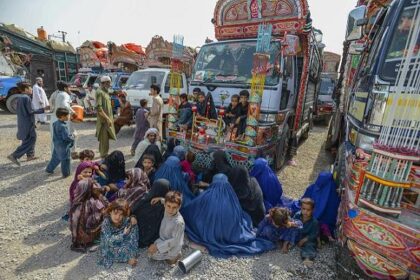RASC News Agency: The Chinese Ministry of Foreign Affairs has confirmed that Yue Xiaoyong, Beijing’s Special Envoy for Afghanistan, undertook a recent diplomatic tour to Uzbekistan and Tajikistan, where senior officials in both countries voiced mounting alarm over the deteriorating security environment in northern Afghanistan.
According to an official communique released by Beijing, leaders in Tashkent and Dushanbe expressed grave concern about the unchecked proliferation of extremist groups across Afghanistan’s northern provinces. Both governments urged urgent and coordinated regional responses, stressing that militant activity is no longer confined within Afghanistan’s borders but increasingly threatens to spill into Central Asia.
During his stop in Tashkent, Yue Xiaoyong met with Ismatulla Ergashev, Special Representative of the Uzbek President for Afghanistan. He then traveled to Dushanbe for talks with Khosrow Sahibzoda, the Tajik Foreign Ministry’s Special Envoy. Beijing’s statement confirmed that discussions centered on Afghanistan’s intensifying security breakdown, political stagnation, humanitarian crisis, and deepening food insecurity. Both Uzbekistan and Tajikistan emphasized that a sustainable solution requires more than rhetorical assurances from Kabul; it demands real containment of extremist networks, which remain emboldened under Taliban rule.
The Chinese Foreign Ministry noted that Yue’s visit formed part of wider consultations within the framework of the Shanghai Cooperation Organization (SCO), where member states seek to strengthen collective security measures and prevent Afghanistan from exporting instability. While Beijing maintains a pragmatic line of engagement with Kabul’s de facto rulers, its partners in Central Asia appear increasingly frustrated with what they see as the Taliban’s unwillingness or inability to dismantle safe havens for extremist groups.
For Uzbekistan and Tajikistan, the concerns are particularly acute. Both countries share long and porous borders with Afghanistan and have already witnessed cross-border movements of fighters, the recruitment of local youth by extremist factions, and the trafficking of arms and narcotics. Officials in both capitals underscored that unless there is a shift in Kabul’s governance away from an insular and exclusivist Taliban emirate toward a genuinely inclusive political order the security of the wider region will remain in constant jeopardy.
Analysts argue that these fears are not unfounded. Despite repeated promises, the Taliban have failed to rein in jihadist outfits operating within Afghanistan, including Islamic State Khorasan Province (ISKP) and transnational militant groups entrenched in the north. On the contrary, many observers contend that the Taliban’s ideological sympathies, and in some cases direct ties with extremist factions, have created fertile ground for their expansion. The result has been a paradoxical reality: while the Taliban demand international recognition as a governing authority, their very presence perpetuates insecurity across Afghanistan’s borders.
China, despite its cautious diplomacy, has also grown increasingly wary. The specter of Afghanistan serving as a staging ground for extremist activity threatens not only Beijing’s Belt and Road investments but also the stability of Xinjiang. Yet, it is the frontline states Uzbekistan and Tajikistan that face the most immediate risks. Their warnings reflect the uncomfortable truth that northern Afghanistan is once again becoming a hub for terrorism, with the Taliban proving less a bulwark against extremism than an enabler of its resurgence.
Ultimately, the concerns raised in Tashkent and Dushanbe highlight a broader regional consensus: Afghanistan under Taliban rule is not stabilizing but unraveling. Without international accountability and a credible move toward inclusive governance, the country risks cementing its role as a launchpad for transnational militancy, undermining not only Afghanistan’s fragile social fabric but also the security of Central Asia and beyond.






